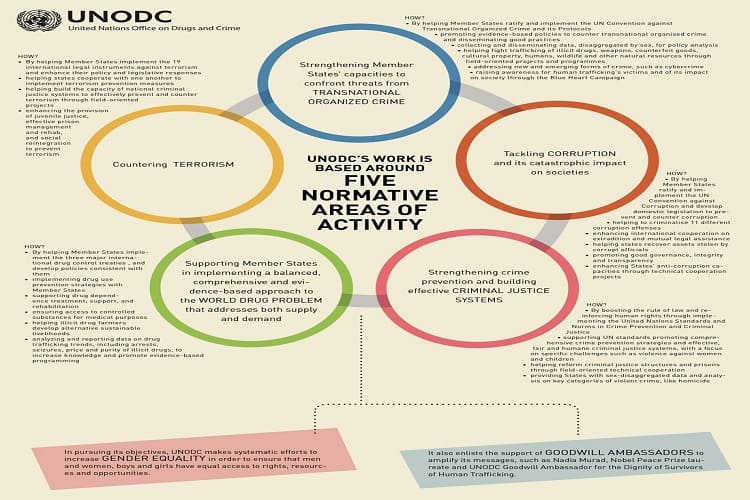According to the latest United Nations Office on Drugs and Crime (UNODC) World Drug Report, about 26.9 crore people used drugs in 2018, which was 30% more than the 2009 figure, with adolescents and young adults accounting for the largest share of users.
UNODC Drug Report
The Report analyses the impact of COVID-19 on the drug markets, and while its effects are not yet fully known, border and other restrictions linked to the pandemic have already caused shortages of drugs on the street, leading to increased prices and reduced purity.
Rising unemployment and reduced opportunities caused by the pandemic are also likely to disproportionately affect the poorest, making them more vulnerable to drug use and also to drug trafficking and cultivation in order to earn money.
The COVID-19 crisis and economic downturn threaten to compound drug dangers further still, when the health and social systems have been brought to the brink and societies are struggling to cope.
The pandemic has also led to opioid shortages, which in turn may result in people seeking out more readily available substances such as alcohol, benzodiazepines or mixing with synthetic drugs. More harmful patterns of use may emerge as some users switch to injecting, or more frequent injecting.
UNODC Functions

UNODC was established to assist the UN in better addressing a coordinated, comprehensive response to the interrelated issues of illicit trafficking in and abuse of drugs, crime prevention and criminal justice, international terrorism, and political corruption. These goals are pursued through three primary functions: research, guidance and support to governments in the adoption and implementation of various crime-, drug-, terrorism-, and corruption-related conventions, treaties and protocols, as well as technical/financial assistance to said governments to face their respective situations and challenges in these fields. Approximately 90% of the Office’s funding comes from voluntary contributions, mainly from governments.
















